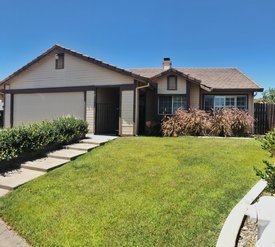Federal and state governments provide assistance to seniors with low income and disabled people to help pay for a range of health care services. This care includes emergency services, doctor and hospital visits, mental health services, prescription drugs, physical rehab and chronic disease management.
The qualification and eligibility process for Medi-Cal can be complicated. For example, there are currently over 90 eligibility categories, which are further split into full-scope or partial-scope coverage, depending on various factors such as age, disability, income and medical needs.
Most eligibility categories can be disregarded as they are not relevant to seniors, but it’s still recommended to seek help in determining which category provides the most benefits.
Low-income seniors and the blind or disabled can receive full-scope Medi-Cal with no share of cost when qualifying for the Aged and Disabled Federal Poverty Level Program. To be eligible for A&D FPL, applicants must have countable monthly income and assets below the maximum allowed for Medi-Cal, as explained below.
Seniors who cannot afford to pay for required medical services but whose income and assets are over the limit for other categories can apply for Aged, Blind, and Disabled – Medically Needy Medi-Cal. However, ABD-MN coverage has a cost-sharing structure.
Recipients of Supplemental Security Income benefits automatically qualify for the SSI-Linked Medi-Cal category, which provides full-scope coverage. Generally, no separate application for Medi-Cal is required.
While each category is different, the eligibility requirements for seniors applying for Medi-Cal include a minimum age of 65 or, if younger, blind or disabled by Social Security standards. The applicant must be a legal resident of California and also meet income and asset limits.
The monthly income limit for Medi-Cal as an individual is 138 percent of the Federal Poverty Level, which, in 2019, is $1,436 plus $500 for each additional person in the household. The maximum limit on assets is $2,000, which excludes the home, one vehicle and other non-countable assets.
There are no categories of Medi-Cal coverage that pays for all costs associated with assisted living, and this level of care is not considered an entitlement in California. For these reasons, it’s recommended to apply early and get on the waiting list to receive any available services.
It is also important to note that Placer County does not currently participate in the Assisted Living Waiver program, which can help pay for some aspects of care in assisted living facilities elsewhere in California. It may be worthwhile to check the list of participating counties to see whether relocating could be more economical.
Seniors and their caregivers can find more information and apply for Medi-Cal via the California Department of Health Care Services website or by mail. Alternatively, applicants can visit a Placer County Human Services office in-person or call (530) 889-7610 for the Auburn branch.






















